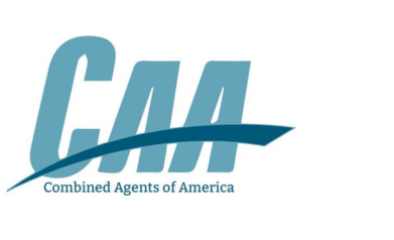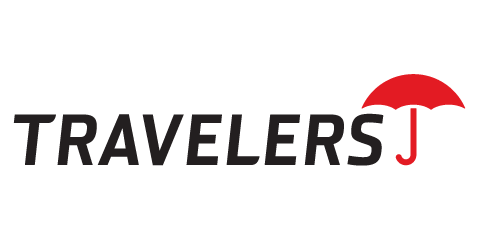Introduction
The Independent Agent's "Checklist for Agency-Company Agreements" was first published as the "Guide to Agency-Company Agreements" in 1978, then revised in 1981 and 1985. The Agency Contracts Committee of the Independent Insurance Agents of America, Inc. decided that it was time to take a fresh look at agency-company agreements, as this is a dynamic area in which contractual provisions change, as new problems and conflicts in the agency-company relationship arise.
Agency agreements have come a long way since IIAA published the "Minimum Criteria for Updating Agency Agreements" in 1968. Many contract protections unknown in those dark years are now boiler plate for most agency agreements. Despite these advances, the committee continues to see two trends continuing to this day.
- Failure by agents to either know or care about what they are signing until it is too late, and then they discover that provisions thought to be in the contract are not.
- Some companies' willingness to take advantage of this lack of attention either by having agents sign deficient contracts or by seeking to ignore rights granted under their own agreements.
Thus, the Agency Contracts Committee work still continues. Through this Guide and through the contract seminars the committee conducts for agents around the country, the committee continues its crusade to educate agents so that they, in turn, will petition their companies for equitable agency agreements.
Terms of Agreement
The committee has long advocated contracts with a specified initial term, with rollover provisions, which cannot be canceled by the company except for cause (e.g., loss of license). This type of agency agreement addresses the critical weakness of most agency agreements today, which is the company's right to terminate at will upon giving the specified notice.
Fixed-term agreements with rollover features add security and stability to the agent-company relationship which benefit the insurance consumer in terms of better, uninterrupted service. Such agreements would also assist both agents and companies in their mutual business planning.
The question of the agent committing to a certain volume of business in return for a fixed-term agreement is a matter which must be negotiated between agent and company. On the one hand the agent might not want to lock himself and his clients into any one company, but on the other hand it might be desirable if the company is willing and able to provide a market for the agent.
A suggested provision would read:
It being the intent of the Agent and Company to provide for stability in their relationship, this Agreement shall remain in force for a term of not less than _____ consecutive years, commencing anew each succeeding January 1, unless terminated pursuant to the terms of this agreement.
Ownership of Expirations
The "ownership of expirations" provision is often overlooked because agents assume that they own the business they place with companies. The agent's ownership of his expirations is the essence of the independent agency system. A properly constructed "ownership of expirations" provision is vitally important not only to preserve the agent's independence and equity in his business, but also to define the proper boundaries between his clients and the company.
In several recent agreements, the committee has seen an erosion in the agent's sole ownership of his expirations through the requirement of joint ownership of the expirations by the agent and the company. Moreover, some contracts state that the agent may, under certain circumstances, lose his expirations following termination of the agency agreement. Other companies require a security interest in the expirations. We do not believe that the agent's ownership should be burdened in any fashion, especially since the value of the book of business is seriously affected by limitations on ownership.
The committee has also witnessed attempts by a number of companies to establish a more direct link between themselves and policyholders. While these efforts are often labeled by the companies as "marketing" support for agents, the committee strongly maintains that the agent should be the one to decide whether he wants such assistance and whether his clients should be so solicited.
The clause developed by the committee is recommended for the following reasons:
- It makes clear the agent's ownership interest in the business and the restrictions placed on solicitation of that business are continually present and do not just arise upon termination of the contract. The wording in some contracts is unclear on this point.
- The clause spells out that the insured is not to be solicited by the company for any lines of insurance or any other products, and that the company is not to provide any of this information to another agent or broker. Many current clauses are not this explicit.
- This clause recognizes the right of the agent to continue to receive commissions at prevailing rates of business which the company must renew by law or contract following the agent's termination. Most contracts are silent on this issue.
- It requires the company to use reasonable business judgment in selling any expirations to meet an indebtedness to return for the expirations.
- The agent is permitted to furnish acceptable collateral security to cover an indebtedness in return for the expirations.
- The clause specifies that a difference of opinion with respect to balances owed by the agent does not constitute a failure to pay, or vest title to expirations in the company.
- It protects the agent's work product, which includes such items as inspections, surveys and applications.
The recommended provision reads as follows:
- The ownership, use and control of expirations, including those on direct billed business, the records thereof, and the agent's work product, shall remain in the undisputed possession and ownership of the agent, and the company shall not use its records of those expirations or work product in any marketing method for the sale, service or renewal of any form of insurance coverage, or other product/service which abridges the agent's right of exclusive ownership, use and control of the expirations or work product, nor shall the company refer or communicate this expiration information or work product to any other party.
- However, in the event of termination of this agreement, if the agent has not then properly accounted for and paid all premiums to the company for which he/she is liable under this agreement, the use and control of the Agent's expirations including all right, title and interest in and to the records thereof shall be vested in the company as of the date of such termination.
In the exercise of its right to collect any indebtedness due from the agent through use and control of such expirations, the company shall use reasonable business judgment in selling such expirations and shall be accountable to the agent for any sums received which, net of expenses, exceed the amount of indebtedness. The agent shall remain liable for the excess of the indebtedness over the sums received by the company. Any indebtedness due from the agent shall not prevent application of the ownership of expirations clause in favor of the agent if the agent furnishes collateral security acceptable to the company in the amount of such indebtedness to be held by the company until the indebtedness is satisfied. A difference of opinion with respect to balances owed by the agent does not constitute a failure to pay and does not have the effect of vesting title to expirations in the company.
- Nothing in this section shall interfere with the company's obligation to renew policies containing contractual renewal guarantees or which must be renewed pursuant to state law, regulation or by order of government authority and the agent shall be entitled to receive commissions on such policies at the prevailing rate of commission in effect prior to the termination."
Amendments to Contract (including Commission Changes)
Under the agreements in force today, amendments to agreements typically are achieved in two ways. First, most contracts can be unilaterally amended by the company with an average of ninety (90) day's notice. Second, the agent and company may mutually agree to amend the contract, in writing at any time. Because contracts should reflect "meeting of the minds," the committee recommends that the amendments should only be made mutually between the agent and the company.
The following provision is recommended:
a. The parties agree that any changes in, or amendments to, this Agreement, including changes in commissions, shall be by mutual agreement, evidenced by a writing and signed by both parties, and each party further agrees to negotiate with the other party in good faith in pursuing such changes and amendments.
b. The company shall give the agent at least 180 days notice of intent to negotiate change in, or amendment to, this agreement, including changes in commissions, before those changes shall go into effect.
c. Commission rates once established, shall remain in effect for at least an 12 month period.
Provision (a) recognizes that the contract is an agreement between two consenting parties and that before the terms of the bargain are changed, each will negotiate with the other in good faith and agree on the changes to be made. This provision makes explicit what had been implicit—the good faith duty placed on each party to negotiate with the other on an individual basis. It is an important principle which the agent should make sure is embodied in his contract.
If provision (a) is to be meaningful, adequate notice of intent to negotiate a change in the contract, including a change in commissions, should be given to the other party as provided in provision (b).
The agent needs adequate notice of the company's intent to negotiate changes in commissions and reasonable stability in commission levels once established so that the agent can plan the future of the business with some degree of certainty and avoid the serious dislocations caused by sudden substantial changes in income. Provisions (b) and (c) serve this end. Provision (c) provides for commission rates to remain in effect for at least 12 months because any shorter period is insufficient for adequate financial planning.
Direct Bill
The placing of business on direct bill can have a substantial effect on the agent's relationships with his insureds; therefore, it becomes extremely important for the agent to carefully review the direct bill provisions in the contract.
Essential contractual protections regarding expirations, terminations and indemnification should also apply to direct bill business. Special provisions for direct bill should include the following:
A. Mutual agreement between agent and company:
- Specifying the particular lines of business that will be put on direct bill; and
- Outlining those functions the company will provide and those the agent will provide on direct bill business.
Provision (A) is extremely important because it provides that decisions on direct bill will be made on the basis of mutual agreement between agent and company. Today, most contracts do not spell out that these decisions will be made by mutual agreement. Some contracts do not cover the point, others seem to indicate that the company makes this decision.
Provision (A)(2) would spell out the respective duties of each of the parties. If this provision is not contained in the contract, it must be covered by a procedures manual.
B. The agency name shall be displayed prominently on communications from company to insured, in the largest print practical, and in any case in print no smaller than the largest used on the communication.
Provision (B) is extremely important because it assures that the agency's name will be prominently displayed on all communications from the company to the insured. Without such protection, the agent's relationship with the insured could be severely eroded.
C. A copy of all bills, underwriting requests, recommendation audits, engineering reports and cancellation notices sent to insured by the company shall be sent to the agent prior to such mailing to the insured. Copies of mass mailings of public service, safety or similar materials shall also be furnished to the agent prior to such mailing.
Provision (C) assures that the insured's inquiries are handled most efficiently because the agent will have received the company communication in advance, and thus will be in a position to discuss it intelligently with the insured.
D. Agent may request and receive a complete list of direct billed policyholders together with their expiration dates and necessary policywriting details of coverage, including mailing labels of list, at the agent's expense, and to receive such information/materials within a specified time after termination, at company expense.
Contracts today typically provide that the agent can get a complete list of direct billed policyholders at termination. The committee believes that this service should be made available to the agent on a periodic basis and not just at termination so that the agent can continue to communicate directly with his insureds. Provision (D) makes this service available to the agent.
E. With regard to direct bill policies in force, the company shall accept the responsibility for sending to the policyholder timely notices of cancellation and of renewal and changes made in the insured's policy as a result of changes in statutes, coverages, or forms, and for outlining any options available to the policyholder as a result of changes in statutes, coverages or forms. The agent should be mentioned as the place to direct questions and requests for service.
The agent runs a substantial risk of an errors and omissions claim if such notices are not provided, however it is not cost-efficient for the agent to send such notices to direct billed policyholders. Therefore, we advocate the inclusion of Provision (E), whereby the company assumes this responsibility with the express stipulation that the policyholder be directed back to the agent for questions and requests for service. This provision can also be handled in the company's direct bill procedures manual.
The company should also assume the responsibility of notifying insureds of intent not to renew the policy following the agent's termination. The content of this letter is, however, very important to the agent's continuing relationship with his insureds. An inappropriately worded communication could cause confusion and mistrust. We recommend that the company and agent should agree on the wording of the notice to be used, subject to the requirements of law.
Indemnification
The indemnification provision of an agency contract is a clause that many agents do not read until after the fact; that is, they are faced with an errors and omissions claim and only then turn to their agency agreement to determine whether the company will provide assistance. To paraphrase one of IIAA's television commercials, this is the wrong time to find out that you don't have the right indemnification provision.
Indemnification provisions have been very dynamic over the last several years. More and more companies are limiting the indemnification they will provide to an agent. The committee recommends, and will continue to recommend, that the company indemnify the agent for all liability arising as a result of a company act or omission except to the extent the agent has caused such error.
Some companies have narrowed the scope of the indemnification by tying it to a specific law, such as the Fair Credit Reporting Act. Others will only indemnify an agent to the extent she/he has not caused, contributed or compounded the company's error. This type of language provides less certainty to an agent; it is unclear exactly what type of indemnification is provided because it is unclear when an agent compounds or contributes to an error.
The following clause is recommended:
The company shall indemnify and hold the agent harmless against all liability, including attorney's fees and costs of investigation and defense incident thereto, arising out of or relating to:
- Company acts or omissions, except to the extent the agent causes such errors;
- Failure of insured to receive notice of cancellation, nonrenewal, impairment of aggregate limits, or any other notice affecting coverage on company-billed business, whether such notices are sent to the insured by the company or by the agent, at the company's request.
- Actions or inactions of the agent based upon: (i) the agent's use of forms, underwriting information, consumer and/or credit reports, or similar information supplied to the agent by the company or obtained by the agent at the company's direction; (ii) the agent following instructions or procedures established by the company; and (iii) any law, regulation, order or directive issued by a governmental authority with jurisdiction over the agent;
- Damages sustained by any person as a result of information furnished by the agent to the company, unless the agent furnished false information with malice or willful intent to injure;
- Company error in the design, maintenance or operation of its software programs or interface environment;
- Any intellectual property infringement by the agent based on software programs provided by the company; and
- Errors or omissions in data communicated within the interface environment which were beyond the agent's control.
Another trend which has developed in the area of indemnification is that of companies requiring the agent to indemnify the company for liability arising as a result of the agent's errors and omissions, or "unauthorized acts or transactions." We do not believe that an agent should be required to indemnify a company.
Usually the provisions are drafted very broadly and are outside the scope of an agent's E&O coverage. Agents are not in a financial position to provide an indemnity of the nature requested by the company.
Companies have also recently been adding provisions requiring an agent to maintain "appropriate" levels of errors and omissions coverage, or maintain stated levels of E&O coverage with "solvent" carriers, or with carriers approved by the company. These types of provisions are difficult because of their vagueness. "Appropriate" levels of E&O coverage can mean different amounts to the agent and the company and could easily lead to a dispute. Further, the solvency requirement for E&O carriers puts a tremendous burden on the agent to track his E&O carrier. Finally, an agent's choice of E&O carrier should be his or her own, not as approved by the company.
Arbitration
The committee continues to strongly advocate the inclusion of an arbitration provision in all agency agreements. The importance of including an arbitration provision is that it provides a fair and objective means of settling disputes that arise under the contract. In short, it makes the other given protections meaningful and makes the contract work. It also encourages good-faith efforts to settle disputes to avoid arbitration and possible litigation. The following provision is recommended.
"If any dispute or disagreement shall arise in connection with any interpretation of this agreement, its performance or nonperformance, or the figures and calculations used, the parties shall make every effort to meet and settle their dispute in good faith informally. If the parties cannot agree on a written settlement to the dispute within 14 days after it arises, or within a longer period agreed upon by the parties, then the matter in controversy shall be settled by arbitration, in accordance with the rules of the American Arbitration Association, and judgment upon the award rendered by the arbitrator(s) may be entered in any court having jurisdiction."The parties may agree to submit the dispute to one arbitrator; otherwise there shall be three, one named in writing by each party within 10 days after notice of arbitration is served by either party upon the other, and a third arbitrator selected by these two arbitrators within 15 days thereafter. If the arbitrators are unable to agree upon a third arbitrator, then the third arbitrator shall be chosen impartially by the American Arbitration Association.
"The determination of the arbitrator(s) shall be final and binding on all parties, provided such determination is made in writing and signed by a majority of the arbitrator(s). Where arbitration results in an award, such award shall include interest in the amount of 10% per annum running from the date when the amount that is the subject of the award first became due.
"The costs of arbitration shall be borne equally by the parties, provided, however, that the arbitrators may assess one party more heavily than the other for these costs upon a finding that the party did not make a good-faith effort to settle the dispute informally when it first arose. Each party shall be responsible for its own attorneys' fees.
When the Guide was first published in 1978, only one of the agency agreements reviewed had an arbitration provision. More and more companies are including arbitration provisions in their agency agreements.
If the agent represents a company without an arbitration provision in its agency agreement, he should ask the company for written notice of its dispute settlement procedures.
Rehabilitation
Agency terminations will always be a critical concern to agents. It does not seem to matter now whether the market is soft or hard, the companies seem to be aggressively "refining" their agency plants.
While some companies view rehabilitation provisions as just one more contractual stumbling block before an agent's termination, and others have used their rehabilitation clause as an ax instead of the remedial tool it was designed to be, rehabilitation can be an important provision for both company and agent.
Terminations for other than cause rarely, if ever, result from decisions that are made overnight. It therefore makes sense for the company to sit down with the agent and make a good-faith effort to work with him to avoid termination.
A suggested rehabilitation provision would read:
Before taking any steps to terminate this Agreement (except termination for cause), in order to avoid termination, the Company will make a good-faith effort to reach mutual agreement with the agent on a written plan for rehabilitation for a period of one year or more. That agreement should specify what the Agent must do to avoid termination, and how the Company intends to assist the Agent to avoid termination.
The written rehabilitation plan would not be included in the agency agreement since it would vary according to the circumstances. All rehabilitation agreements should, however, contain the following elements:
- Identification by the company of the problem areas;
- Mutual agreement on performance objectives and specific dates for accomplishment;
- Periodic meetings at which the performance objectives will be reviewed; and
- The length of plan, which generally should extend for one year.
Agency Terminations
While many agreements allow the company to terminate the contract for any reason, the committee believes that the company should agree not to terminate the agent on the grounds of the volume of business placed or mix of business, unless the company has previously informed the agent of its requirements in writing. The company should also give the agent sufficient time to meet these requirements and should agree not to terminate the agent if its underwriting actions preclude the agent from meeting the requirements.
The committee also strongly believes that it is not fair to terminate the agent on grounds of loss ratio unless the decision is based on the average loss ratio over a reasonable number of years. Such a provision should also specify that the agent will be told on a timely basis that he has incurred a loss ratio that the company considers unacceptable.
If termination is inevitable there are certain protections which should be contained in the agency agreement. There should be a provision that entitles the agent to at least 180 days advance written notice before termination, such notice to contain the specific reasons for termination. Upon termination all renewals that come up within a one-year period following termination that meet current underwriting standards should be renewed for a term of at least one additional year, at the rate of commission and upon terms in effect prior to termination. This provision allows for a smooth transition of business following termination.
Other important provisions which should be included in the termination section are:
- Agent should be permitted to continue to service the business and to receive the prevailing rate of commission on policies containing a contractual guarantee of renewal and on policies renewed pursuant to state law, and regulation, as well as by order of government authority.
This provision addresses the problem that arises following termination of the agent, when the company is required either by law/regulation or by the insured's contract to renew the coverage. The terminated agent could possibly be unfairly separated from this business in violation of his ownership of the expirations without this provision.
- The parties agree to enter a limited agency agreement in the event of termination setting forth the contractual rights of both parties and services to be provided to the policyholder, and the agent's ability to continue performing routine service functions on the business.
- The agent shall have the right to decide whether existing policies should be reinsured, replaced or continued in force following the termination.
Here again, a very important provision is one that states that if the company sends out notices of nonrenewal or cancellation following the termination of the agent, the company and agent shall agree on the wording of the notice to be used, subject to the requirements of laws. We recommend all such notices instruct the insured to contact his agent to place the business in a company the agent represents.
Purchase/Sale of Agency
As sales, mergers, and acquisitions become more commonplace in the world of the independent agent, more issues arise for the agent to address.
Companies uniformly request notification of the agent's intent to sell, assign, or transfer his agency, and the committee recommends that notice should be given when reasonably practicable. Some companies require advance notice of up to ninety (90) days, which may actually interfere or stop a proposed sale or acquisition, especially if the value of the business is affected by the company's refusal to appoint the prospective purchaser.
The following provision is recommended:
In the event that the Agency is sold, transferred or merged and the Company terminates the Agreement in accordance with its terms, then the Agent shall have a reasonable transition period to move the business placed with the Company to other carrier(s) of the Agent's choice.
Payments Procedures
One area of continual controversy is that of payment procedures. Whether the business is direct billed or agency billed, the agreement should clearly set out the payment period and method.
A provision setting out the length of time to pay balances and that obligates the company to pay balances due the agent on the same basis that the agent must pay the company is recommended. The provision should also provide that the period of time allowed to pay balances does not commence until a correct, billable, and deliverable policy is furnished to the agent or until the effective date, whichever is later.
Also recommended is a provision relieving the producer of liability for audit premiums, including noncancellable surety bond anniversary premiums, where timely notice of inability to collect is given to the company. The minimum time suggested is sixty (60) days.
Payments required outside of the account current have also caused concern in recent years. An agent's normal flow of processing business is interrupted, and costs in internal operations have increased due to these types of requirements.
We recommend a provision be included to the effect that if the insurer is unable to issue a policy in a timely manner because of delay by the insured or the agency, the company issue a billable estimated premium binder which would be added to the agent's account current as though the policy had been received. If the delay was caused by the company, the estimated premium binder would not be issued, and payment would be made through the agent's account current when the policy was issued.
Payment Disputes
When there is a provision for termination of the agreement if the agent owes money to the company, language should be inserted which provides written notice to the agent of the amount the company believes that the agent owes. The agent then should be provided with a reasonable amount of time (10 days recommended) in which to cure the default prior to termination. Routine bookkeeping errors by the agent and legitimate disputes between the agent and the company as to the amounts owed should not trigger the termination provision.
Personal Guarantees
When the agency is a corporation, the company often includes a personal guarantee as part of the contract. A personal guarantee generally states that the person signing the guarantee will be personally responsible for the guarantee. This could result in the signer's personal assets being subject to a judgment against the agency if the agency does not pay the judgment. It is recommended that the personal guarantee be deleted from the agreement in its entirety.
Miscellaneous Provisions
- Provision that the company will provide the agent with a written statement of its underwriting standards and requirements.
- A "successor" clause allowing the agent to assign or transfer the agreement with the written consent of the company, with such consent not unreasonably withheld.
- Provision giving agent reasonable advance notice of company's intent not to renew or to cancel a particular insured, where the insured has abided by terms of the contract. (See "Policy Cancellation and Nonrenewal")
- Provision spelling out relative responsibilities of the agent and company for the retention of records and for giving insureds notices as required by law. (see "Retention Schedule" - pdf format)
- A provision that the agent shall not be obligated to furnish information to any insurance company about his agency operation other than such information that is directly related to the company's business being placed with the agency. All other information about the agency shall be considered privileged information.
- A provision allowing the agent a reasonable amount of time to forward copies of all binders, etc., to the company.
Service Centers
A new area of concern for agents is that of company service centers. Whether a separate agreement or an addendum to the basic agreement, service center contracts must also be carefully reviewed. The agreements currently in use are short and simple, but they tend to lack important safeguards.
Whether an agent is required to or elects to utilize a service center, he or she should review the agreement with respect to ownership of expirations, limitations on company cross-selling and renewals, and termination provisions. As discussed above, the agent's ownership of expirations should be clearly recognized. Further, any company contact with insureds should be limited, especially in the areas of cross-selling and renewals, except as specifically agreed to by the agent. These types of services should be referred back to the agent. Provisions concerning termination should clearly state both the agent's and company's obligations following termination, including what information an agent will receive concerning servicing done by the company.
The committee recommends that the agreements contain specific language as to the servicing information to which and agent is entitled, both on an ongoing basis and upon termination. Moreover, the agreement should clearly address the issue of the agent's ownership of expirations before, during, and after any servicing center is utilized.
Independent agents who contract to use a company service center should seek the following contractual protections:
- 180 days' advance notice of termination by company.
- Agreement by company to renew business for 24 months following any termination by the agent or the company unless agent wrongdoing is involved. This could be done by providing a specific run-off provision or using a three-year rolling term agreement. This allows the agent time to build a service staff and transition the business to another company. This provision should also apply if there has been a sale of the agency and the company has decided not to appoint the new agency.
- Agreement by company to give agent 24 months to transition business from the service center to the company's traditional processing center, if the agent decides the service center does not fit his agency.
- Provision to provide the agent with complete customer information on an ongoing basis and at termination.
- Provision that complete customer information will be downloaded into the agent's management system on an ongoing basis and at termination.
- Company indemnification of the agent for all acts or omissions of the company service center, including service center application of general coverage guidelines provided by the agent to certain situations.
- Agent ownership of expirations of business placed with service center, cross-sold by service center, or sold by service center from any type of agency lead. Also, company's agreement not the use these expirations for the sale of any additional product or service with the agent's approval.
- 180 days' advance notice of contract amendments including any increase in service fee.
- Agreement by company that use of the service center will not become mandatory in the future.
- Agreement that approval of assignment of the business to a new agency will not be unreasonably withheld.














